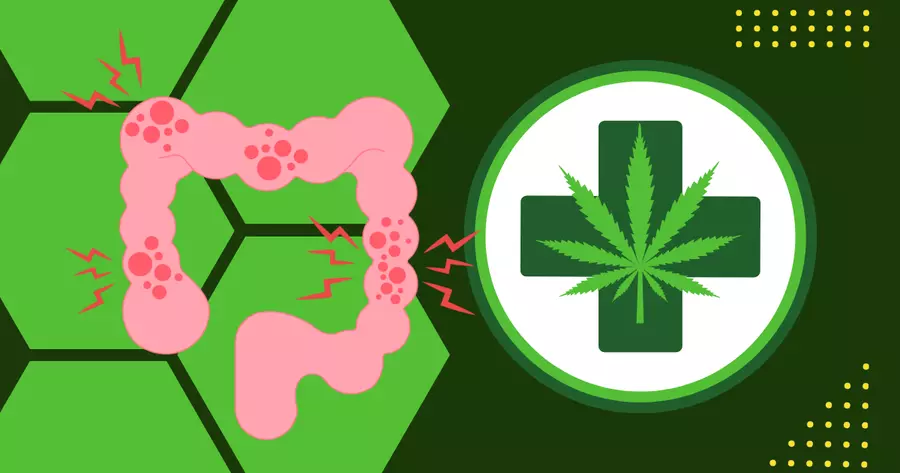What You Need to Know About Cannabis and Crohn’s Disease
Crohn’s disease is a chronic inflammatory bowel disease (IBD) that affects the gastrointestinal tract, causing symptoms such as abdominal pain, diarrhoea, weight loss, and fatigue. Managing Crohn’s disease can be challenging, and traditional treatment methods may not always be effective. This has led some individuals to explore alternative therapies, including medical cannabis.

Crohn’s Disease Explained
Crohn’s disease is a chronic condition that can affect any part of the gastrointestinal tract, though it commonly impacts the small intestine and the start of the colon. Common symptoms include nausea, vomiting, loss of appetite, and fatigue, often resulting in weight loss and malnutrition. Over time, inflammation can cause scarring, intestinal blockage, and other complications such as ulcers and tissue damage.
Beyond the digestive system, Crohn’s can affect other parts of the body, leading to joint pain, skin rashes, and liver or eye inflammation. While the exact cause of Crohn’s remains unknown, risk factors include smoking, family history of IBD, and a compromised immune system.
The Shortcomings of Current Medical Treatments
Surgery is the only medical intervention that can cure Crohn’s disease by removing affected parts of the intestine, but it is reserved for severe cases. Milder cases may be managed through lifestyle changes, including dietary adjustments and stress management. In more moderate cases, corticosteroids and immunosuppressants are often prescribed, though these treatments may not work for everyone. As a result, some patients are turning to medical cannabis as a complementary treatment option.
The Endocannabinoid System and Cannabis
The endocannabinoid system (ECS) is a network of receptors, cannabinoids, and enzymes that regulate various physiological processes, including appetite, pain response, and inflammation. Medical cannabis interacts with the ECS through cannabinoids like THC (tetrahydrocannabinol) and CBD (cannabidiol). THC and CBD bind to the CB1 and CB2 receptors within the ECS, influencing neurotransmitter release and immune response.
-
THC: Known for its psychoactive effects, THC also has potential therapeutic benefits, including pain relief.
-
CBD: Non-intoxicating, CBD is recognised for its anti-inflammatory and calming effects.
How Can Medicinal Cannabis Help with Crohn’s Disease?
Several studies have explored the potential of medical cannabis to alleviate Crohn’s disease symptoms. One study showed that cannabis could reduce inflammation in the gut by lowering pro-inflammatory cytokines, which are thought to contribute to Crohn’s symptoms. Another study found that patients using medical cannabis reported improved quality of life, less pain, and increased appetite compared to those who did not use cannabis.
Additionally, medical cannabis may help modulate the immune system, which plays a key role in Crohn’s disease. For example, research has shown that cannabis can reduce the levels of T-helper cells, which are involved in the inflammatory response seen in Crohn’s.
However, while cannabis has potential benefits, it also comes with risks. Side effects can include dizziness, fatigue, and impaired cognition. Smoking cannabis can lead to respiratory problems, and high doses of THC can cause anxiety or paranoia. For these reasons, it is important for individuals to consult with a doctor to determine the right dosage and method of administration.
Methods of Administering Cannabis for Crohn’s Disease
There are several ways to administer medical cannabis, and choosing the right method depends on individual preferences and treatment goals:
-
Vaporising dried flower or cannabis oil: A popular method that provides rapid relief, but may not be suitable for everyone.
-
Sublingual tinctures: Tinctures are liquids infused with cannabis extracts and are taken under the tongue for quick absorption. They offer precise dosing but may have an unpleasant taste.
-
Edibles: Edible cannabis products offer long-lasting effects but can be challenging to dose correctly, as the effects vary based on an individual’s metabolism.
